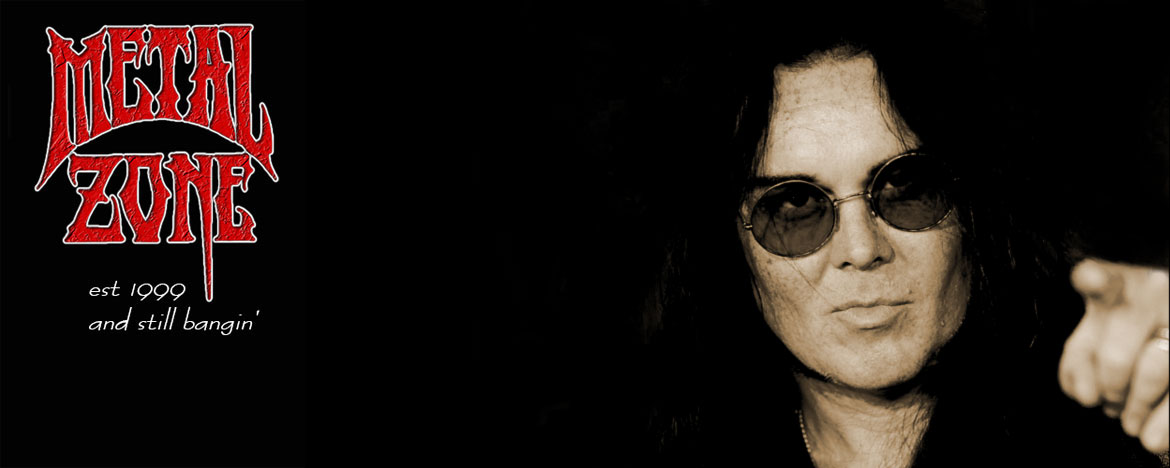\r\nGuitar-driven music is not in the rudest of health, but little by little\r\nits vital signs are getting stronger, industry insiders say \r\n
\r\n
\r\n"I have no doubt rock is not dead," says the man often suspected of being its killer. George Ergatoudis,\r\nthe head of music at Radio 1 and 1Xtra, stands accused of the \r\npremedidated murder of rock bands, of promoting manufactured pop, of \r\nensuring the demise of the great British tradition of four skinny lads \r\nin tight jeans clutching guitars. Except, he points out, there’s no \r\ncorpse.\r\n
\r\n
\r\nRock music’s death certificate is signed with startling \r\nfrequency. A year ago, after three rock songs featured in the 100 \r\nbestselling singles of 2009, the DJ Paul Gambaccini announced:\r\n"Rock as a prevailing style is part of music history." This month, \r\nafter rock’s share of album sales fell to 29.4% – its lowest proportion \r\nsince 2003 – the obituarists came out once more.\r\n
\r\n
\r\nIn\r\nfact, Ergatoudis says, rock’s vital signs are getting stronger, little \r\nby little. "There has been something of a shift," he says. "The obvious \r\nsigns like the top 40 don’t really tell the story about the underlying \r\ninterest in guitar-driven music. This year we will start to see the \r\npendulum swing back a little."\r\n
\r\n
\r\nThen, he says, there’s the issue of\r\nhow to define rock: is it just guitar bands? He points out that hugely \r\nsuccessful dance acts such as Nero, Chase & Status, Skrillex and Pendulum blend rock with electronica. Pendulum played at the Download heavy metal festival last year, and Skrillex has been booked for this year’s other big metal festival, Sonisphere.\r\n
\r\n
\r\nIt also depends how you define death. "On the live circuit, it is very healthy," says Cerne Canning, who manages Franz Ferdinand and one new UK guitar band who did break through last year, the Vaccines.\r\n"It’s possibly the driver in the live market." Indeed, guitar bands are\r\nthe staples of the medium-size venues that are the staples of the \r\ntouring circuit. And heavier bands with little or no mainstream presence\r\nare able to fill the biggest venues.\r\n
\r\n
\r\nNot that guitar music is in \r\nthe rudest of health, as even its defenders admit. "As someone who looks\r\nfor talent, I would admit this area hasn’t been great in recent years,"\r\nCanning says. "I do worry the cards are stacked against it – it’s as \r\nhard [to break a guitar band] as it has been since I’ve been involved \r\nwith music, since the mid-80s."\r\n
\r\n
\r\nAt the heart of rock’s supposed demise is the issue facing the whole music industry:\r\nthe collapse in profits caused by illegal downloading. The conventional\r\nnarrative holds that with money harder to come by, the major record \r\nlabels – Warner, Sony and Universal (which has agreed a deal\r\nto buy the recorded music arm of the fourth major, EMI, pending \r\nofficial approval) – are less inclined to invest the time and money \r\nneeded to develop young bands over several albums. Instead, they seek \r\nthe quick financial fix of putting proven songwriters and producers \r\ntogether with malleable artists, resulting in the glut of X featuring Y \r\nhit singles of recent years.\r\n
\r\n
\r\nJim Chancellor, the managing director\r\nof the Universal imprint Fiction, is one of the few label bosses to \r\nhave bucked the prevailing trends. He has helped Elbow and Snow Patrol to massive success after their careers began inauspiciously. Two weeks ago, the third album by another Fiction guitar band, the Maccabees, entered the charts at No 4. The same position was taken this week by the St Albans group Enter Shikari with A Flash Flood Of Colour.\r\n
\r\n
\r\n"I’ve\r\nalways looked to bands for careers," Chancellor says, "because they get\r\nbetter with age. Bands grow into songwriting." He believes the \r\nweb-driven churn of new music has penalised young bands, who are thrown \r\ninto the public eye before they are ready and then written off for not \r\nbeing good enough.\r\n
\r\n
\r\nWhat’s missing at the moment isn’t individual \r\nbands but a banner around which they can rally. "What there isn’t at the\r\nmoment is a big scene," says Neil Pengelly, who books scores of rock \r\nbands every year for the Reading and Leeds festivals. "There’s not a \r\nmajor label band being successful and then 16 Identi-Kits coming through\r\nin a wave and being signed." That’s how rock thrived in recent years, \r\nbe it Britpop in the mid-90s the garage rock revival spearheaded by the \r\nStrokes and White Stripes a decade ago, or the glut of young bands \r\naround the time the Arctic Monkeys emerged in the middle of the last \r\ndecade.\r\n
\r\n
\r\nBut those flowerings sow the seeds of their own demise, \r\nclogging up release schedules with inferior imitators. For every Oasis \r\nthere are a dozen Northern Uproars, for every Arctic Monkeys a glut of Little Man Tates,\r\nand music fans tire of the declining standards. "When I started this \r\njob six years ago it was all about guitars and British urban music was \r\nnowhere," Ergatoudis says. "British guitar bands were coming out of \r\nevery orifice. But listeners started to email in saying it all sounded \r\nthe same. Then the cycle shifted and it’s been difficult for British \r\nguitar bands to make any headway."\r\n
\r\n
\r\nWithin three years, he reckons,\r\nthe argument about rock’s death will have died, because another \r\nflagship band will have begun the cycle again. That band will combine \r\nthree things: "You need a minimum of one iconic member. They have to \r\nhave something to say both lyrically and in the public arena. They will \r\nneed some great tunes, and a bit of an original edge. That’s the magic \r\nformula."\r\n
\r\n

